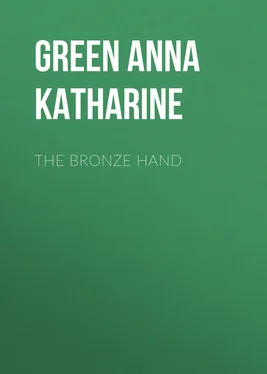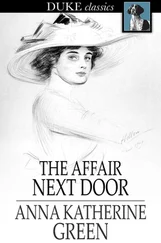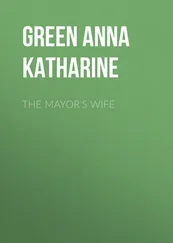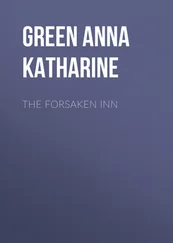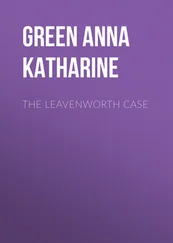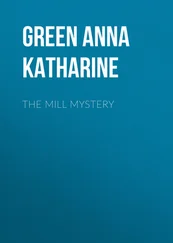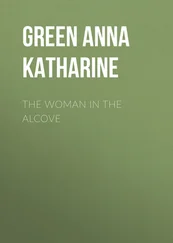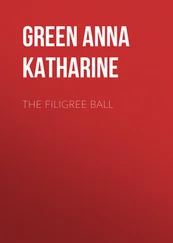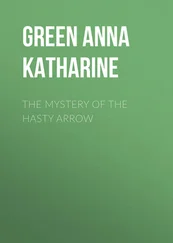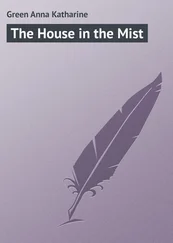Anna Green - The Bronze Hand
Здесь есть возможность читать онлайн «Anna Green - The Bronze Hand» — ознакомительный отрывок электронной книги совершенно бесплатно, а после прочтения отрывка купить полную версию. В некоторых случаях можно слушать аудио, скачать через торрент в формате fb2 и присутствует краткое содержание. Жанр: foreign_prose, Классический детектив, foreign_detective, foreign_antique, на английском языке. Описание произведения, (предисловие) а так же отзывы посетителей доступны на портале библиотеки ЛибКат.
- Название:The Bronze Hand
- Автор:
- Жанр:
- Год:неизвестен
- ISBN:нет данных
- Рейтинг книги:4 / 5. Голосов: 1
-
Избранное:Добавить в избранное
- Отзывы:
-
Ваша оценка:
- 80
- 1
- 2
- 3
- 4
- 5
The Bronze Hand: краткое содержание, описание и аннотация
Предлагаем к чтению аннотацию, описание, краткое содержание или предисловие (зависит от того, что написал сам автор книги «The Bronze Hand»). Если вы не нашли необходимую информацию о книге — напишите в комментариях, мы постараемся отыскать её.
The Bronze Hand — читать онлайн ознакомительный отрывок
Ниже представлен текст книги, разбитый по страницам. Система сохранения места последней прочитанной страницы, позволяет с удобством читать онлайн бесплатно книгу «The Bronze Hand», без необходимости каждый раз заново искать на чём Вы остановились. Поставьте закладку, и сможете в любой момент перейти на страницу, на которой закончили чтение.
Интервал:
Закладка:
Anna Katharine Green
The Bronze Hand / 1897
I. THE FASCINATING UNKNOWN
HER room was on the ground floor of the house we mutually inhabited, and mine directly above it, so that my opportunities for seeing her were limited to short glimpses of her auburn head as she leaned out of the window to close her shutters at night or open them in the morning. Yet our chance encounter in the hall or on the walk in front, had made so deep an impression upon my sensibilities that I was never without the vision of her pale face set off by the aureole of reddish brown hair, which, since my first meeting with her, had become for me the symbol of everything beautiful, incomprehensible and strange.
For my fellow-lodger was a mystery.
I am a busy man now, but just at the time of which I speak, I had leisure in abundance.
I was sharing with many others the unrest of the perilous days subsequent to the raid of John Brown at Harper’s Ferry. Abraham Lincoln had been elected President. Baltimore, where the incidents I am relating transpired, had become the headquarters of men who secretly leagued themselves in antagonism to the North. Men and women who felt that their Northern brethren had grievously wronged them planned to undermine the stability of the government. The schemes at this time were gigantic in their conception and far-reaching in their scope and endless ramifications.
Naturally under these conditions, a consciousness of ever-present danger haunted every thinking mind. The candor of the outspoken was regarded with doubt, and the reticence of the more cautious, with distrust. It was a trying time for sensitive, impressionable natures with nothing to do. Perhaps all this may account for the persistency with which I sat in my open window. I was thus sitting one night—a memorable one to me—when I heard a sharp exclamation from below, in a voice I had long listened for.
Any utterance from those lips would have attracted my attention; but, filled as this was with marked, if not extraordinary, emotion, I could not fail to be roused to a corresponding degree of curiosity and interest.
Thrusting out my head, I cast a rapid glance downward. A shutter swinging in the wind, and the escaping figure of a man hurrying round the corner of the street, were all that rewarded my scrutiny; though, from the stream of light issuing from the casement beneath, I perceived that her window, like my own, was wide open.
As I continued to watch this light, I saw her thrust out her head with an eagerness indicative of great excitement. Peering to right and left, she murmured some suppressed words mixed with gasps of such strong feeling that I involuntarily called out:
“Excuse me, madam, have you been frightened in any way by the man I saw running away from here a moment ago?”
She gave a great start and glanced up. I see her face yet—beautiful, wonderful; so beautiful and so wonderful I have never been able to forget it. Meeting my eye, she faltered out:
“Did you see a man running away from here? Oh, sir, if I might have a word with you!”
I came near leaping directly to the pavement in my ardor and anxiety to oblige her, but, remembering before it was too late that she was neither a Juliet nor I a Romeo, I merely answered that I would be with her in a moment and betook myself below by the less direct but safer means of the staircase.
It was a short one and I was but a moment in descending, but that moment was long enough for my heart to acquire a most uncomfortable throb, and it was with anything but an air of quiet self-possession that I approached the threshold I had never before dared to cross even in fancy.
The door was open and I caught one glimpse of her figure before she was aware of my presence. She was contemplating her right hand with a look of terror, which, added to her striking personality, made her seem at the instant a creature of alarming characteristics fully as capable of awakening awe as devotion.
I may have given some token of the agitation her appearance awakened, for she turned towards me with sudden vehemence.
“Oh!” she cried, with a welcoming gesture; “you are the gentleman from up-stairs who saw a man running away from here a moment ago. Would you know that man if you saw him again?”
“I am afraid not,” I replied. “He was only a flying figure in my eyes.”
“Oh!” she moaned, bringing her hands together in dismay. But, immediately straightening herself, she met my regard with one as direct as my own. “I need a friend,” she said, “and I am surrounded by strangers.”
I made a move towards her; I did not feel myself a stranger. But how was I to make her realize the fact?
“If there is anything I can do,” I suggested.
Her steady regard became searching.
“I have noticed you before to-night,” she declared, with a directness devoid of every vestige of coquetry. “You seem to have qualities that may be trusted. But the man capable of helping me needs the strongest motives that influence humanity: courage, devotion, discretion, and a total forgetfulness of self. Such qualifications cannot be looked for in a stranger.”
As if with these words she dismissed me from her thoughts, she turned her back upon me. Then, as if recollecting the courtesy due even to strangers, she cast me an apologetic glance over her shoulder and hurriedly added:
“I am bewildered by my loss. Leave me to the torment of my thoughts. You can do nothing for me.”
Had there been the least evidence of falsity in her tone or the slightest striving after effect in her look or bearing, I would have taken her at her word and left her then and there. But the candor of the woman and the reality of her emotion were not to be questioned, and moved by an impulse as irresistible as it was foolhardy, I cried with the impetuosity of my twenty-one years:
“I am ready to risk my life for you. Why, I do not know and do not care to ask. I only know you could have found no other man so willing to do your bidding.”
A smile, in which surprise was tempered by a feeling almost tender, crossed her lips and immediately vanished. She shook her head as if in deprecation of the passion my words evinced, and was about to dismiss me, when she suddenly changed her mind and seized upon the aid I had offered, with a fervor that roused my sense of chivalry and deepened what might have been but a passing fancy into an active and all-engrossing passion.
“I can read faces,” said she, “and I have read yours. You will do for me what I cannot do for myself, but–Have you a mother living?”
I answered no; that I was very nearly without relatives or ties.
“I am glad,” she said, half to herself. Then with a last searching look, “Have you not even a sweetheart?”
I must have reddened painfully, for she drew back with a hesitating and troubled air; but the vigorous protest I hastened to make seemed to reassure her, for the next word she uttered was one of confidence.
“I have lost a ring.” She spoke in a low but hurried tone. “It was snatched from my finger as I reached out my hand to close my shutters. Some one must have been lying in wait; some one who knows my habits and the hour at which I close my window for the night. The loss I have sustained is greater than you can conceive. It means more, much more, than appears. To the man who will bring me back that ring direct from the hand that stole it, I would devote the gratitude of a lifetime. Are you willing to make the endeavor? It is a task I cannot give to the police.”
This request, so different from any I had expected, checked my enthusiasm in proportion as it awoke a senseless jealousy.
“Yet it seems directly in their line,” I suggested, seeing nothing but humiliation before me if I attempted the recovery of a simple love-token.
Читать дальшеИнтервал:
Закладка:
Похожие книги на «The Bronze Hand»
Представляем Вашему вниманию похожие книги на «The Bronze Hand» списком для выбора. Мы отобрали схожую по названию и смыслу литературу в надежде предоставить читателям больше вариантов отыскать новые, интересные, ещё непрочитанные произведения.
Обсуждение, отзывы о книге «The Bronze Hand» и просто собственные мнения читателей. Оставьте ваши комментарии, напишите, что Вы думаете о произведении, его смысле или главных героях. Укажите что конкретно понравилось, а что нет, и почему Вы так считаете.
